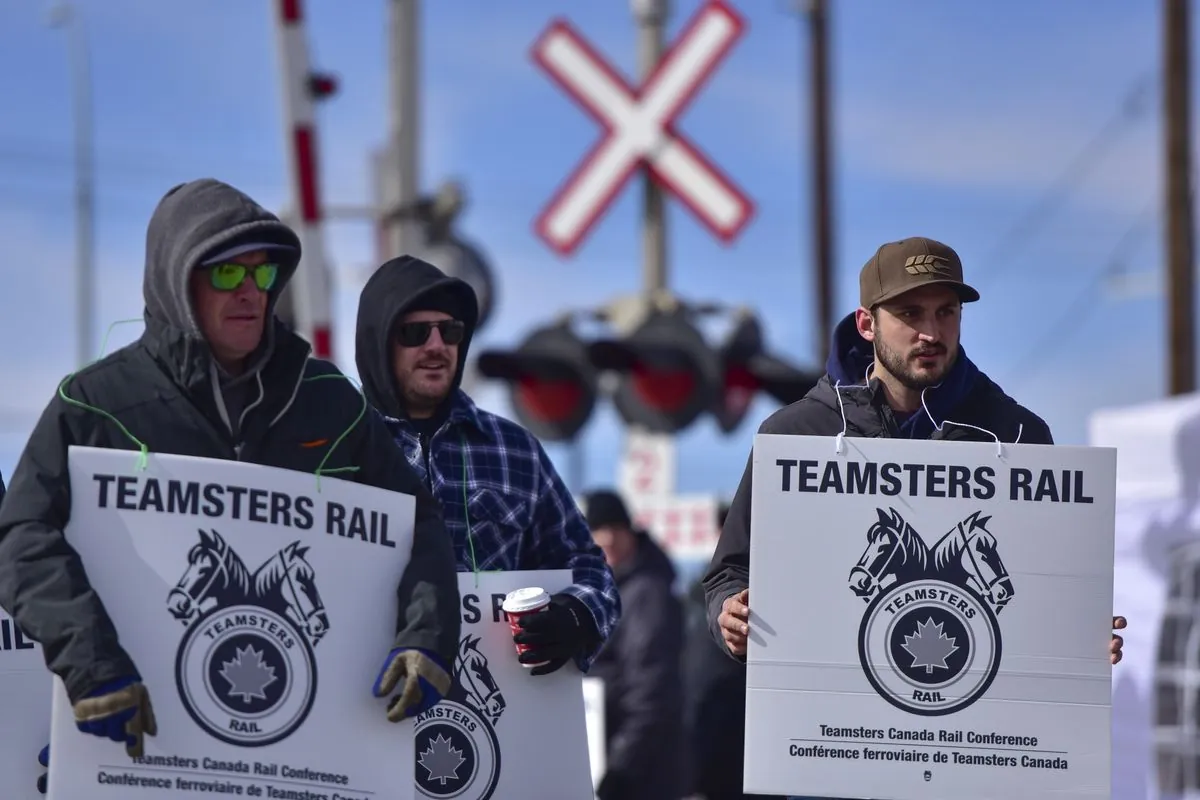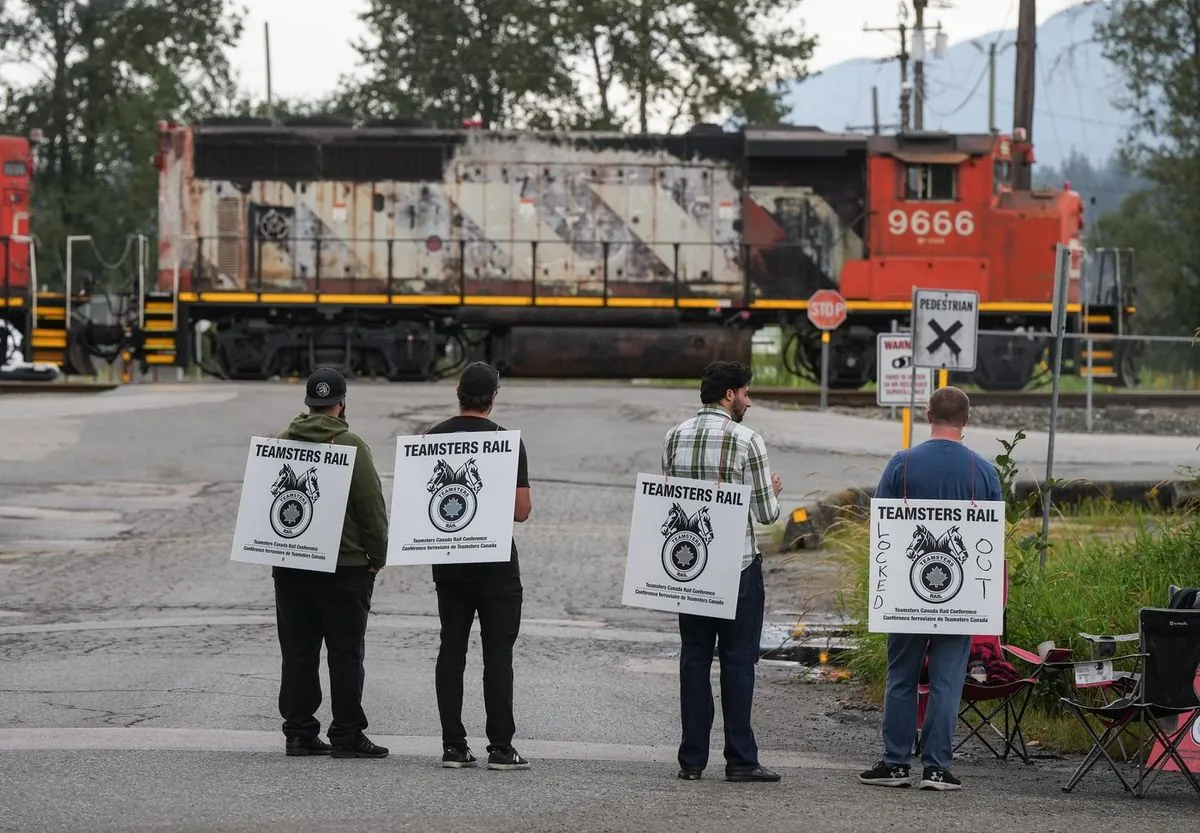Canadian Rail Workers Ordered Back to Work, Union Plans Legal Challenge
Over 9,000 Canadian rail workers ordered to stay on job, impacting labor relations. Teamsters union plans legal challenge, warning of potential effects on other federally regulated sectors like aviation.

In a significant development for Canada's labor landscape, more than 9,000 rail workers have been mandated to remain on the job following a recent decision by the Canada Industrial Relations Board. This ruling, which came into effect on August 24, 2024, has sparked controversy and raised concerns about its potential impact on labor relations across various federally regulated sectors in Canada.
Paul Boucher, president of the Teamsters Canada Rail Conference, has expressed strong opposition to the decision, labeling it as "disastrous for labour, for workers." The union, representing workers from Canadian National Railway and Canadian Pacific Kansas City, is now preparing to mount a legal challenge against the ruling.
The dispute between the Teamsters and the rail companies primarily revolves around scheduling and shift durations. For instance, Canadian National Railway is pushing for 12-hour shifts, a significant increase from the current 10-hour limit stipulated in the existing agreement. This contentious issue highlights the ongoing struggle between worker rights and operational efficiency in Canada's crucial rail sector.

The decision to halt work stoppages and impose arbitration comes at a critical time for Canada's export-driven economy. The country's extensive railway system, one of the largest in the world, plays a vital role in transporting goods across the vast Canadian landscape. Agricultural businesses, in particular, had been pleading for relief from the disruptions caused by the labor dispute.
"Any federally regulated company, it's a win for them at this point. This is disastrous for labour, for workers."
The implications of this decision extend beyond the rail sector. With Air Canada pilots currently in negotiations and potentially facing job action as early as mid-September 2024, the railway ruling could set a precedent for other federally regulated industries. The Air Line Pilots Association (ALPA), representing over 5,400 Air Canada pilots, is closely monitoring the situation.
Boucher has called for solidarity among labor groups across Canada, emphasizing the historical significance of this moment. He stated, "We're going to be calling on all labour across Canada to join our fight and take this all the way." This call to action underscores the potential for a united front among Canadian labor unions in challenging what they perceive as a threat to workers' bargaining power.
The Canadian government's intervention in this dispute, through Labour Minister Steven MacKinnon's request to the Canada Industrial Relations Board, highlights the delicate balance between maintaining essential services and protecting workers' rights. This intervention is not unprecedented, as the Canadian government has the authority to step in when labor disputes threaten essential services.
As the situation unfolds, both Canadian National Railway and Canadian Pacific Kansas City have expressed their focus on restoring service. However, the Teamsters union remains committed to its legal challenge, signaling a potentially protracted battle over workers' rights and the future of labor relations in Canada's federally regulated sectors.
This ongoing dispute serves as a reminder of the complex interplay between labor rights, economic interests, and government intervention in Canada's industrial landscape. As the legal challenge progresses, its outcome could have far-reaching implications for workers across various sectors, potentially reshaping the dynamics of labor negotiations in the country for years to come.


































